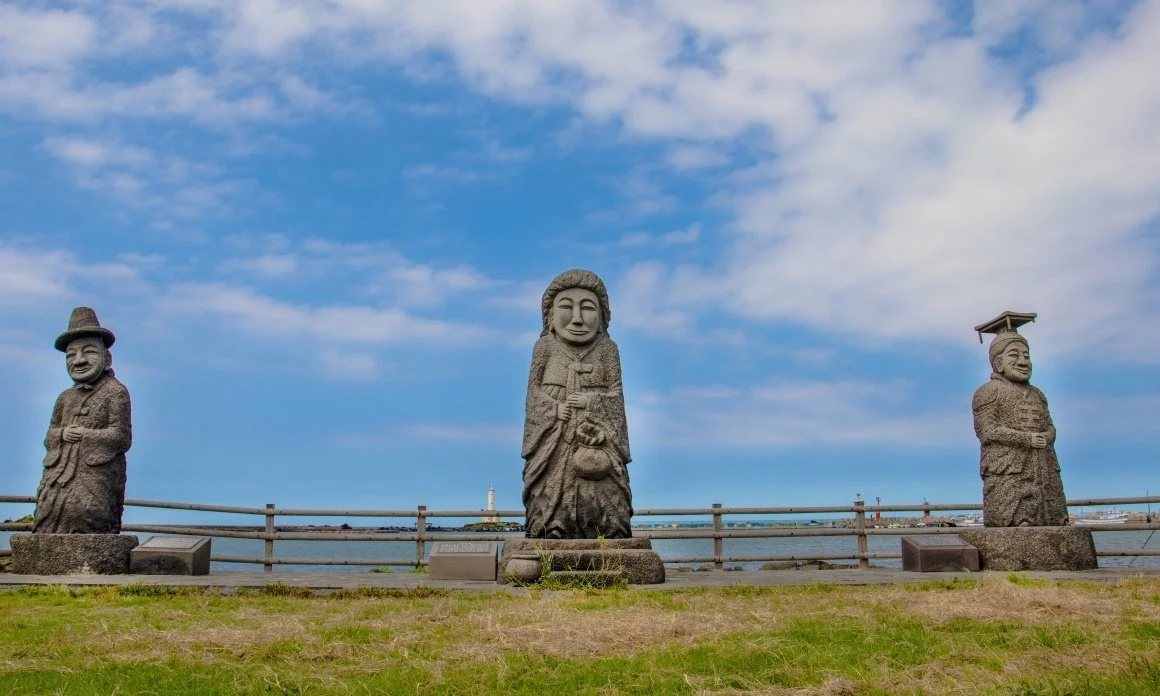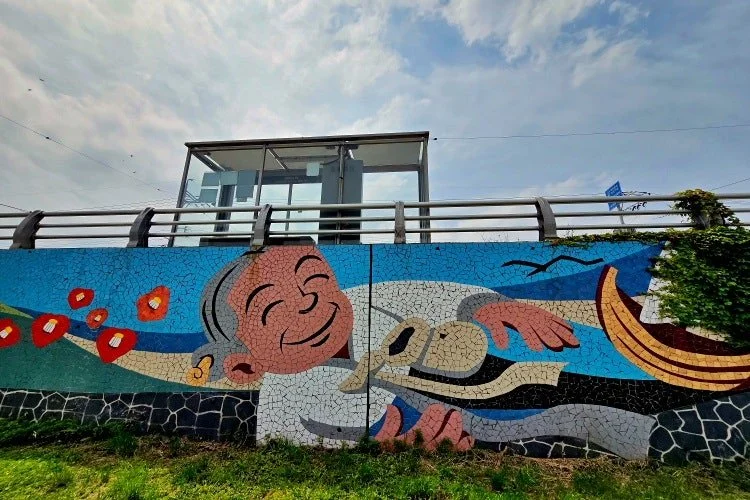KOREAN LITERATURE CORNER - June 2025
By Josh Kim
Korean Mythology & Pride Month: The Wind Goddess & Shamanism
As we celebrate Pride Month and uplift stories of diverse identities, one unexpected place to find resonance is in the rich world of Korean shamanic mythology.
Statue of Yeongdeung Halmang located on coast of Jeju Island.
Meet Yeongdeung Halmang (영등할망)—the wind and sea goddess of Jeju Island. Each year in early spring, the islanders prepare for her return. According to legend, she arrives riding the east wind during the second lunar month, bringing with her the seeds of the sea—fish, shellfish, seaweed—before departing on the twelfth day. Her visit is fleeting but vital—if she’s honored properly with ritual offerings and respect, she blesses the island with an abundant harvest from the ocean; if not, she takes her blessings elsewhere.
But Yeongdeung Halmang isn’t just a giver of fish and storms. She’s deeply tied to the identity and rhythm of Jeju’s women divers—the haenyeo (해녀)—who, for generations, have dived into cold waters to harvest abalone and seaweed. Her story weaves together femininity, labor, nature, and transformation, reflecting the strength and fluidity of both the sea and those who dwell near it.
A mural of Yeongdeung Halmang in Jeju Island, the myth of Yeongdeung Halmang is runs deep in Jeju culture,
Even more compelling in the context of Pride Month is the way Korean shamanism—무속 (musok)—treats gender as fluid, performative, and spiritually flexible. Shamans (called mudang or baksu) regularly channel deities like Yeongdeung Halmang, regardless of their own gender. A male shaman might take on her voice, clothes, and gestures during trance—not as an act of mimicry, but as a sacred embodiment. In this realm, identity is not fixed—it is chosen, entered, and respected as divine.
This tradition embraces an integral part of the LGBTQ+ community—identity is expansive. Yeongdeung Halmang reminds us that being in tune with your true nature—whatever form it takes—is not only valid but vital.
Fun fact:
The annual Yeongdeung-gut (영등굿) ritual is still performed on Jeju Island today. The ceremonies involve elaborate offerings, music, masked dance, and dramatic storytelling to welcome and honor the goddess. Many rituals are led by women shamans—who hold a revered spiritual authority that predates patriarchal religion.


